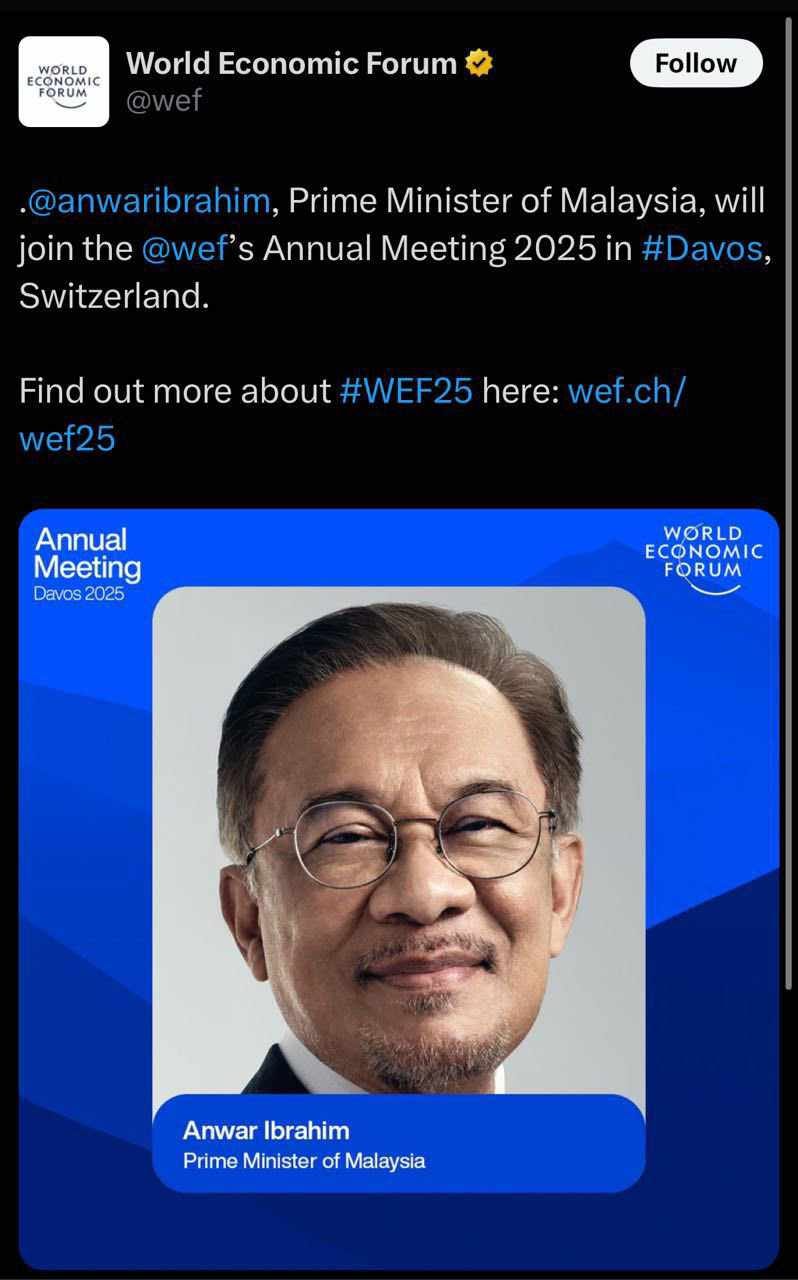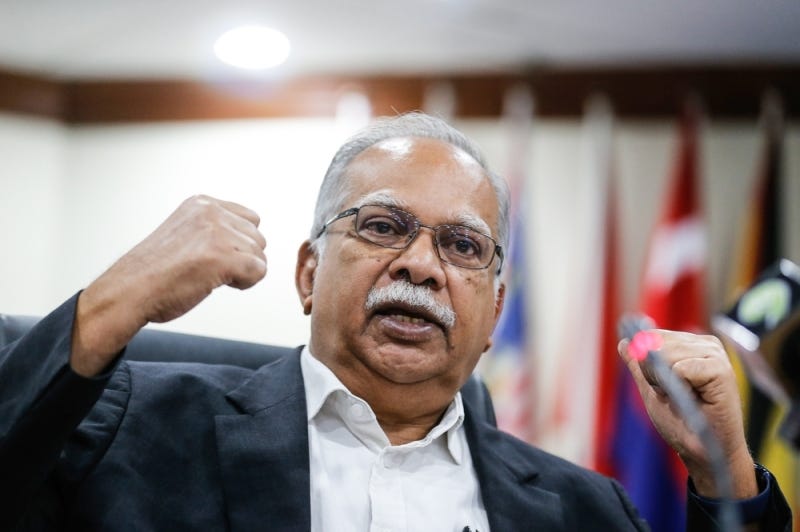
Murray Hunter
Guest Editorial: Navigating the perception of nepotism : Nurul Izzah’s new roles in think tanks
Prof. Dr. Ramasamy
Jan 12, 2025

Will Nurul’s first job be to accompany her father to Davos?
It is not uncommon for individuals who have lost their parliamentary seats to take up new roles in think tanks or other organizations.
In this context, Nurul Izzah Anwar, former MP for Permatang Pauh and daughter of Prime Minister Anwar Ibrahim, has been fortunate to transition into prominent positions within two think tanks—Socio-Economic Research Unitiative (SERI) and Polity—in a short period.
While Nurul’s capabilities and potential for leadership are undeniable, her family connection to the Prime Minister inevitably invites allegations of nepotism and favoritism.
As the new chairperson of SERI, which focuses on evidence-based research for social change, and the executive chairman of Polity, which aims to empower women and youth, she assumes roles with significant social impact.
However, these appointments come with challenges. The perception of nepotism, regardless of her merit, cannot be easily dismissed.
Even if Nurul is the most qualified candidate, the shadow of her family ties may overshadow her professional abilities.
This reality highlights a persistent dilemma in public and political life: the tension between merit-based appointments and the influence of familial connections.
It is unfortunate that Nurul’s credentials and experience will be scrutinized under the lens of her father’s position.
Such scrutiny not only undermines her achievements but also reinforces a broader issue in governance—how family links, even in cases of genuine merit, complicate public perception.
While Prime Minister Anwar Ibrahim may not have had a direct role in her appointments, the optics of her selection will undoubtedly fuel criticism.
Whether Nurul should resign to preserve her integrity or continue and prove herself through action is a decision only she can make.
Yet, it is worth noting that stepping down solely to avoid allegations might deprive the organizations of a capable leader.
The Madani government, already under scrutiny for various issues, can ill afford perceptions of nepotism and cronyism. Addressing these concerns requires not only transparency in appointments but also clear communication about the qualifications and selection process.
Ultimately, Nurul Izzah’s challenge will be to demonstrate her worth through measurable results.
Her success or failure in these roles will determine whether her appointments are viewed as acts of nepotism or genuine meritocracy.
However, the broader question remains: How can public institutions ensure that capable individuals are given opportunities without their family connections casting a shadow over their achievements?
Prof. Dr. P Ramasamy
Jan 12, 2025

Will Nurul’s first job be to accompany her father to Davos?
It is not uncommon for individuals who have lost their parliamentary seats to take up new roles in think tanks or other organizations.
In this context, Nurul Izzah Anwar, former MP for Permatang Pauh and daughter of Prime Minister Anwar Ibrahim, has been fortunate to transition into prominent positions within two think tanks—Socio-Economic Research Unitiative (SERI) and Polity—in a short period.
While Nurul’s capabilities and potential for leadership are undeniable, her family connection to the Prime Minister inevitably invites allegations of nepotism and favoritism.
As the new chairperson of SERI, which focuses on evidence-based research for social change, and the executive chairman of Polity, which aims to empower women and youth, she assumes roles with significant social impact.
However, these appointments come with challenges. The perception of nepotism, regardless of her merit, cannot be easily dismissed.
Even if Nurul is the most qualified candidate, the shadow of her family ties may overshadow her professional abilities.
This reality highlights a persistent dilemma in public and political life: the tension between merit-based appointments and the influence of familial connections.
It is unfortunate that Nurul’s credentials and experience will be scrutinized under the lens of her father’s position.
Such scrutiny not only undermines her achievements but also reinforces a broader issue in governance—how family links, even in cases of genuine merit, complicate public perception.
While Prime Minister Anwar Ibrahim may not have had a direct role in her appointments, the optics of her selection will undoubtedly fuel criticism.
Whether Nurul should resign to preserve her integrity or continue and prove herself through action is a decision only she can make.
Yet, it is worth noting that stepping down solely to avoid allegations might deprive the organizations of a capable leader.
The Madani government, already under scrutiny for various issues, can ill afford perceptions of nepotism and cronyism. Addressing these concerns requires not only transparency in appointments but also clear communication about the qualifications and selection process.
Ultimately, Nurul Izzah’s challenge will be to demonstrate her worth through measurable results.
Her success or failure in these roles will determine whether her appointments are viewed as acts of nepotism or genuine meritocracy.
However, the broader question remains: How can public institutions ensure that capable individuals are given opportunities without their family connections casting a shadow over their achievements?
Prof. Dr. P Ramasamy

Malaysian, 75 years of age. Former professor of political economy UKM. Former Senior Research Fellow, ISEAS. Former Visiting Professor, University Kassel, Germany. Deputy Chief Minister Penang, 2008-2023. Former member of parliament, 2008-2013. Three terms Perai state assemblyman. Former Chairman of Penang Hindu Endowments Board. Involved in peace talks in Aceh and Sri Lanka. International peace consultant. Chairman of political party Urimai.
No comments:
Post a Comment